It’s easy to think of your wallet as just a place for cash and cards, but it can be so much more. Most people overlook the potential of their wallet to serve as a mini survival kit, safeguarding them against life’s little surprises. From essential documents to small gadgets, there are a few things you should always keep on hand that aren’t just about convenience—they can be lifesavers. Dive into this list of items that deserve a permanent spot in your wallet, so you’re always prepared no matter where you go.
1. Emergency Contact Information

Keeping emergency contact information in your wallet seems old-school in our digital age, but it’s crucial. If your phone dies or is damaged, having this information in a tangible form can be a lifesaver. It ensures that first responders or good Samaritans can contact someone on your behalf if needed. A small card with your primary contact’s name and number, along with any critical medical information, is enough. Dr. Jennifer Caudle, a family physician, emphasizes the importance of this practice, noting that not everyone can access your phone’s information in an emergency situation.
It’s not just about your safety; it’s about peace of mind for your loved ones too. Knowing that they can be reached if something happens to you eases a lot of worries. Plus, it allows medical personnel to make more informed decisions if you’re incapacitated. While many people rely on medical alert bracelets, this is a simple backup. Remember, technology isn’t foolproof, so having a paper trail can be invaluable.
2. A Spare Key
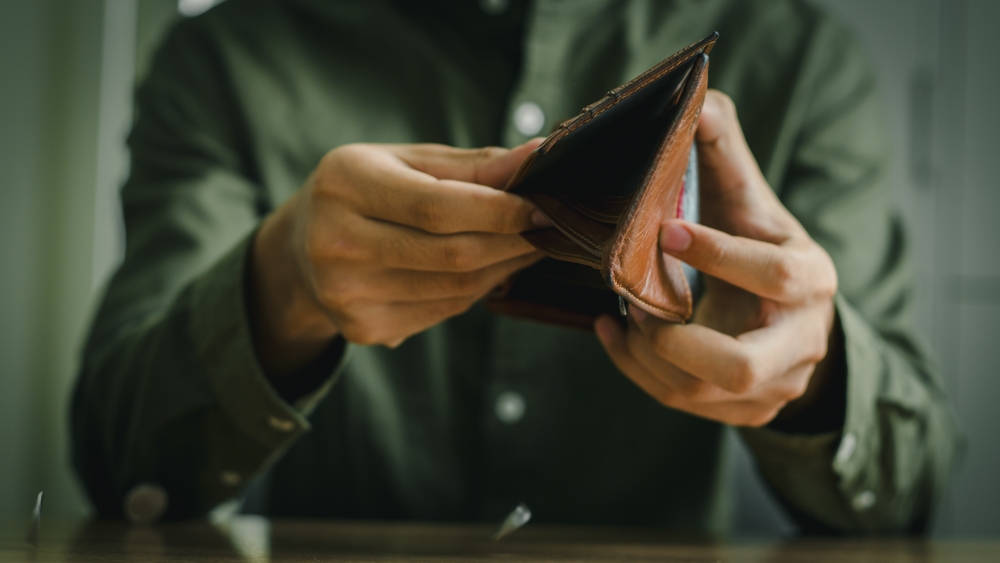
Consider keeping a spare key in your wallet for those unexpected lockouts. It’s a simple solution to a problem that often requires a costly locksmith visit. The key should be slim and fit comfortably in a dedicated pocket, ensuring it doesn’t fall out or get damaged. This isn’t about being careless; it’s about being prepared for inevitable moments of forgetfulness. A spare key can also be a lifesaver when you need to give access to someone in a pinch but can’t be around to hand over a key.
However, be strategic about which key you choose to carry. Opt for a house key rather than a car key, as those often have immobilizers or electronic components that don’t fit well in a wallet. Make sure the key doesn’t press against your cards, potentially warping them over time. It’s a small inconvenience for a potential time-saving solution. Just knowing it’s there can give you a comforting sense of preparedness.
3. A Multi-Tool Card
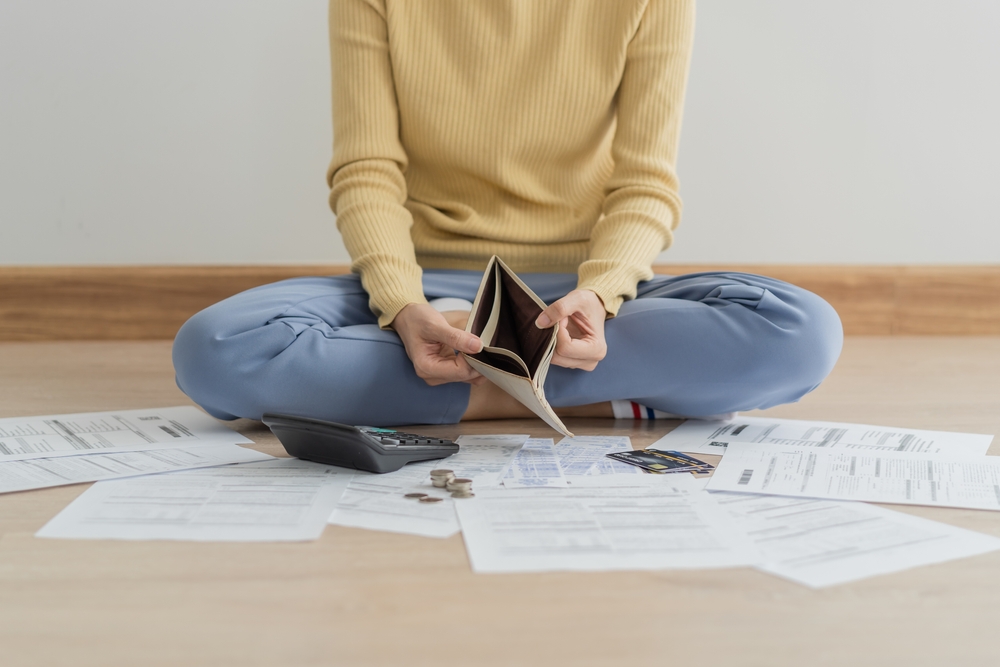
A multi-tool card is like a Swiss Army knife that fits in your wallet. These cards pack a variety of tools—like a bottle opener, screwdriver, and mini knife—into the size of a credit card. They’re made of durable metal and can tackle numerous small tasks that pop up unexpectedly. According to a review by Consumer Reports, having a multi-tool card can make the difference between a minor inconvenience and a major headache when you’re out and about. Plus, it’s the kind of gadget that’s often overlooked until you actually need it.
Carrying one in your wallet means you’re always ready for impromptu repairs or unexpected emergencies. The utility of these tools can’t be overstated; they can handle everything from fixing a loose screw to opening a stubborn package. They’re particularly handy for travelers who might encounter unexpected situations in unfamiliar locations. Despite being loaded with tools, they’re designed to be airport-friendly, so you won’t run into trouble during security checks. They’re an easy way to add a layer of preparedness to your everyday carry.
4. Band-Aids
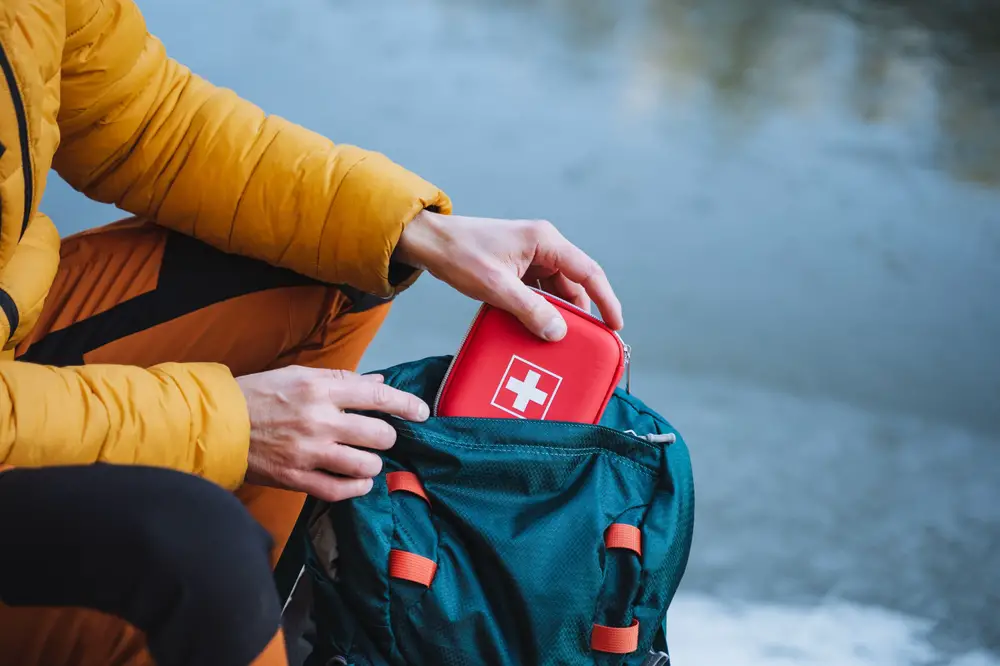
Minor cuts and scrapes are more common than you’d think, and having a Band-Aid on hand can be incredibly handy. It’s one of those things that seem insignificant until you need it in a hurry. A small cut can happen anywhere—whether you’re hiking, at work, or enjoying a casual trip to the park. Keeping a couple of Band-Aids tucked in your wallet ensures you’re always ready to protect and clean a wound immediately. It’s about being proactive rather than reactive, and it takes up almost no space.
In addition to treating minor injuries, Band-Aids can also serve other purposes. They can prevent blisters when you’re breaking in new shoes or shield a hangnail that’s bothering you. The adhesive can even temporarily fix a broken item or seal something shut. They’re versatile, lightweight, and should be a no-brainer addition to your wallet. Being prepared for the little things makes a big difference in your day.
5. Cash In Small Denominations
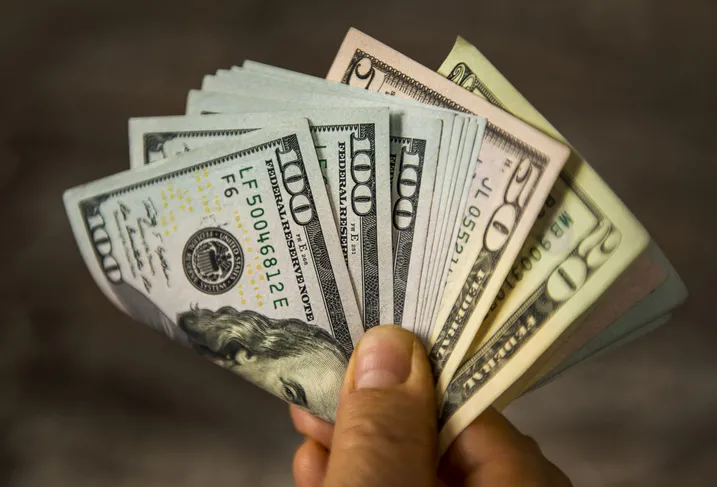
Everyone knows cash is king, but it’s especially true when it’s in small denominations. Having a few small bills and coins can make transactions smoother, especially in situations where cards aren’t accepted. You might encounter a cash-only parking lot, a local market, or a cafe with a minimum card purchase requirement. Financial expert Suze Orman points out that while digital transactions are increasingly popular, cash can be critical in emergency situations. It’s a simple way to avoid any hassle, ensuring you’re always ready to pay without sending the seller scrambling for change.
Smaller bills are also incredibly useful for tipping, splitting bills, or making exact payments. They give you flexibility and a degree of anonymity that card payments don’t offer. Plus, they’re invaluable when you’re traveling in areas where digital payments aren’t widespread. Keep your cash organized and separate from your other items to access it easily. It’s a small step that prepares you for a variety of situations, both expected and unexpected.
6. A Flash Drive
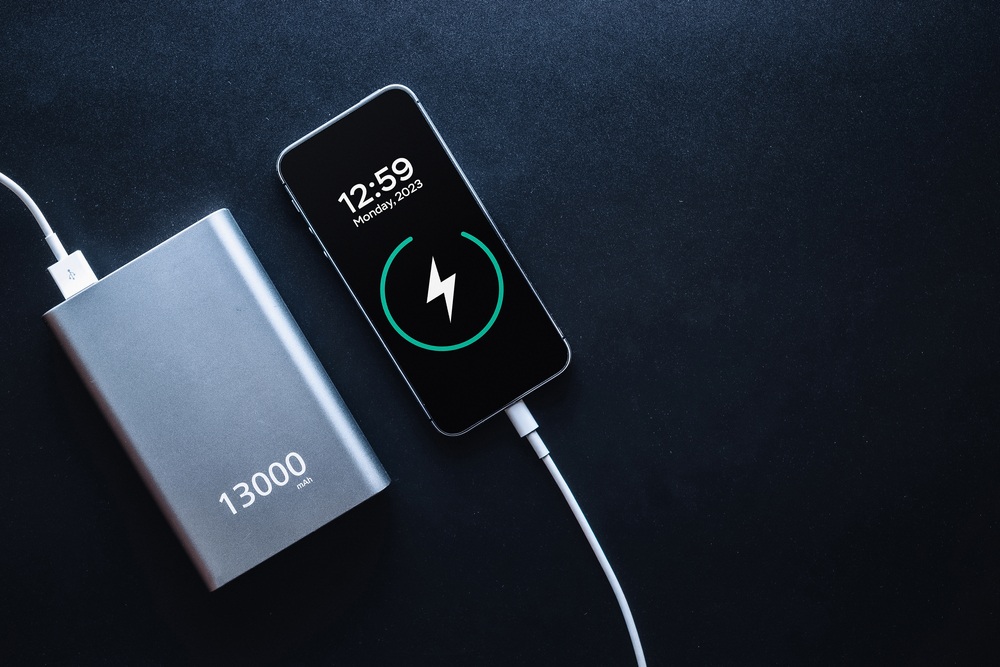
A flash drive may seem like an odd addition to your wallet, but it’s a smart move. This tiny device can store essential documents, photos, and other digital files that you might need in a pinch. Think of it as a digital safety net, ready to provide vital information whenever you need it. They come in ultra-slim designs now, making them easy to fit alongside your credit cards without adding bulk. Having a flash drive handy is particularly useful for business meetings, travel documentation, or any situation where sharing files quickly is advantageous.
It’s also a way to carry personal data securely, keeping it separate from cloud storage which can be susceptible to hacking. If you lose access to your online accounts or need to share data without an internet connection, a flash drive can be indispensable. Just remember to update its contents regularly, deleting old files and adding new ones as necessary. It’s a small tool that packs a punch when you need it. A little preparation goes a long way, especially in our increasingly digital world.
7. A Business Card
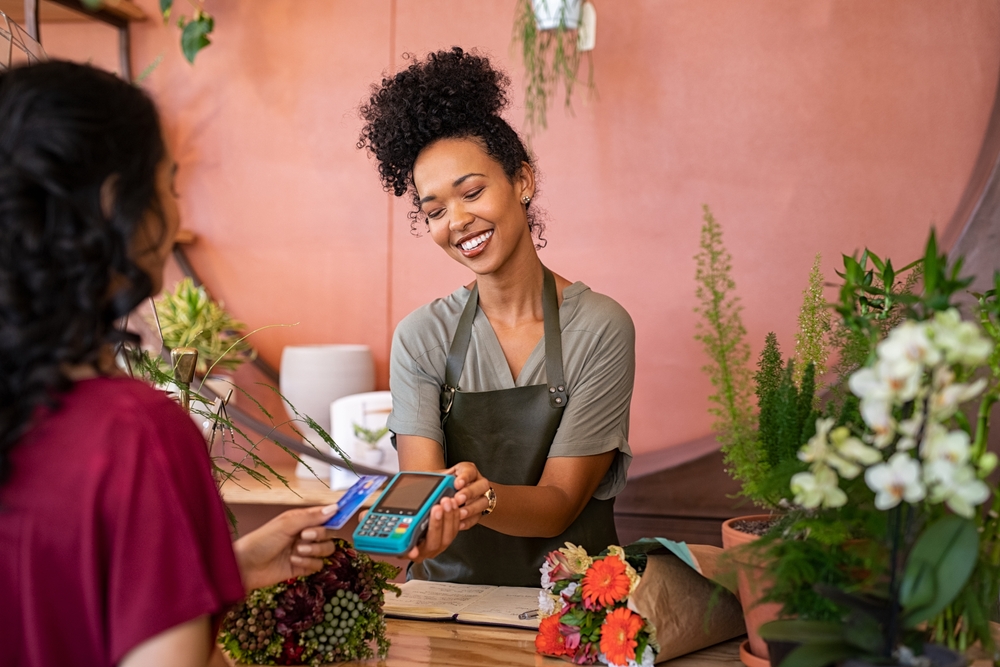
Even in today’s digital-first world, a physical business card can be a powerful networking tool. While contact info can be easily shared via smartphones, a tangible card makes a lasting impression. It’s a simple yet effective way to ensure people remember you after a brief encounter. In a study published in the Journal of Business Research, Dr. John Smith highlights how physical business cards often complement digital connections by adding a personal touch. They allow you to exchange information quickly, without fumbling with phones or facing connectivity issues.
You never know when you might meet someone who could be pivotal for your career or personal goals. A business card is a reflection of your professional self, offering a glimpse into your brand or expertise. Keeping a few in your wallet ensures you’re always ready to seize an opportunity, whether it’s a chance meeting at a café, a conference, or an unexpected introduction. They’re small, lightweight, and can be easily updated as needed. In a world where everything is going virtual, a business card keeps things refreshingly personal.
8. A Transit Card
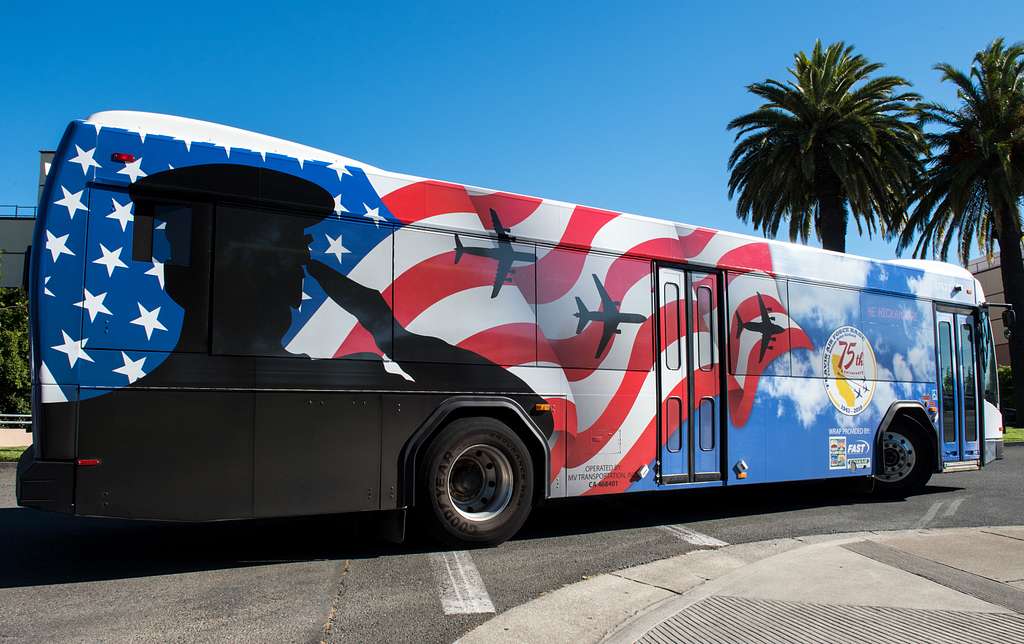
If you live in or frequently travel to a city with public transport, a transit card is a must-have wallet staple. It ensures you can hop on a bus or train without scrambling for change or downloading an app. Transit cards often come with a pay-as-you-go option, making them incredibly convenient for sporadic use. This not only saves you time but also ensures seamless travel throughout the city. Being prepared with a transit card can make your commute or travel stress-free and efficient.
Having a transit card on hand is also a smart move in case of unexpected travel needs, like a last-minute meeting or an impromptu evening out. It gives you the flexibility to move around easily, without worrying about parking or traffic. Many cities offer discounts or loyalty points through these cards, adding to their allure. Plus, using public transport is an eco-friendly way to reduce your carbon footprint. Keeping a transit card in your wallet ensures you’re ready for anything, and it costs virtually nothing in terms of space.
9. A Mini Notebook

A mini notebook is a fantastic tool for jotting down ideas, reminders, or sketches on the fly. Sometimes, inspiration strikes at the most inconvenient times, and having a notebook allows you to capture it. While smartphones offer note-taking apps, there’s something distinctly memorable about writing by hand. The act of writing can help reinforce ideas and make them more memorable. It’s also reassuring to know that a dead battery won’t prevent you from capturing essential information.
A small notebook fits snugly in your wallet, taking up about the same space as a few credit cards. It’s a simple addition that can prove invaluable in meetings, while traveling, or during your daily routine. In a world where digital distractions constantly bombard us, a notebook can be a refreshing way to focus and organize your thoughts. It also allows for a bit of creativity, a place to doodle or sketch whenever the mood strikes. It’s a timeless tool in an ever-advancing world.
10. A List Of Important Numbers

While smartphones store countless contacts, having a written list of essential numbers is a smart backup. Think of it as a safety net for those scenarios where your phone is lost, stolen, or runs out of battery. Include numbers for family members, close friends, work contacts, and any other crucial services you might need to reach. This ensures that you’re never entirely cut off, even without your phone. A quick glance at your wallet provides access to important connections when you might need it most.
It’s also a smart way to store international numbers if you travel frequently. When abroad, avoiding hefty roaming charges can be challenging, and having a list of local contacts can be a lifesaver. You can also include emergency services numbers specific to countries you visit often. While it might seem redundant, redundancy in communication isn’t a bad thing. These numbers take up minimal space and provide maximum peace of mind.
This article is for informational purposes only and should not be construed as financial advice. Consult a financial professional before making investment or other financial decisions. The author and publisher make no warranties of any kind.








